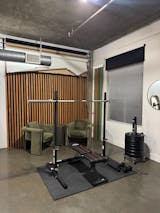MACRO RECOMMENDATIONS
By Shane Robert
There is a famous saying that, I believe, was coined by the trainer of champions, Mr. Vince Gironda: “Bodybuilding is 20% training, 80% nutrition.” While I don’t necessarily agree when it comes to all training (not just bodybuilding), it is certainly true that nutrition plays a huge role in any training endeavor. Whether someone is looking to lose fat, gain muscle or become the strongest kid in their neighborhood, nutrition is the key to all of those goals.
As with all things in the training world, there are a million and one diets and meal plans to choose from. Those may be good starting points, however the best results are going to come from creating an individualized approach. The one that suits your body and needs the best. This will take some trial and error, but there are some guidelines to give you a jumping off point and, as we age, regardless of goal, nutritional needs, and our ability to utilize that nutrition, changes. With that change comes different recommendations.
|
AGE (years) |
PROTEIN (grams/lb BW) |
CARBS (grams/lb BW) |
FAT (grams/lb BW) |
|
<20 |
0.7-1 |
2.2-3.2 |
0.25-0.4 |
|
21-40 |
0.9-1.2 |
1.7-2.7 |
0.35-0.5 |
|
41-65 |
1.1-1.4 |
1.2-2.2 |
0.45-0.6 |
|
>65 |
1.3-1.5 |
0.7-1.7 |
0.55-0.7 |
This table represents the minimum of each macronutrient that you should eat for optimal health and performance. The top end represents the likely amount that you will get the most benefit from. It isn’t to say that you can’t have more, simply that there are diminishing returns to the magnitude of benefit after that point (depending on training load and recovery needs). Though you could argue that women can get by with a little less protein, there is no down side to sticking to the recommendations, and the carb needs are also lower due to general overall lower lean muscle mass.
Without getting too deep into nutritional science, you can see that as we age our protein needs increase, our carbohydrate demands go down, and our fat requirements go up. Briefly, this is because the protein synthetic effect diminishes with age, insulin sensitivity and carbohydrate uptake tend to go down, and hormones drop, which are supported with higher healthy fat intake.
Here is an example of how this might work for a 45 year old male who weighs 165 pounds:
Protein: 180 - 230
Carbs: 198 - 363
Fat: 74 - 99
This would give a calorie range of 2178 - 3263. From my anecdotal experience, this is pretty close to what someone in this situation would need for a bulk on the top end, or a lowest I would want to see calories go for a cut. Sadly, for a woman of this age, the calories would likely shift down 600-800 calories on both ends.
These recommendations are not written in stone, but they have been validated by science and anecdotally, tend to be quite accurate.







